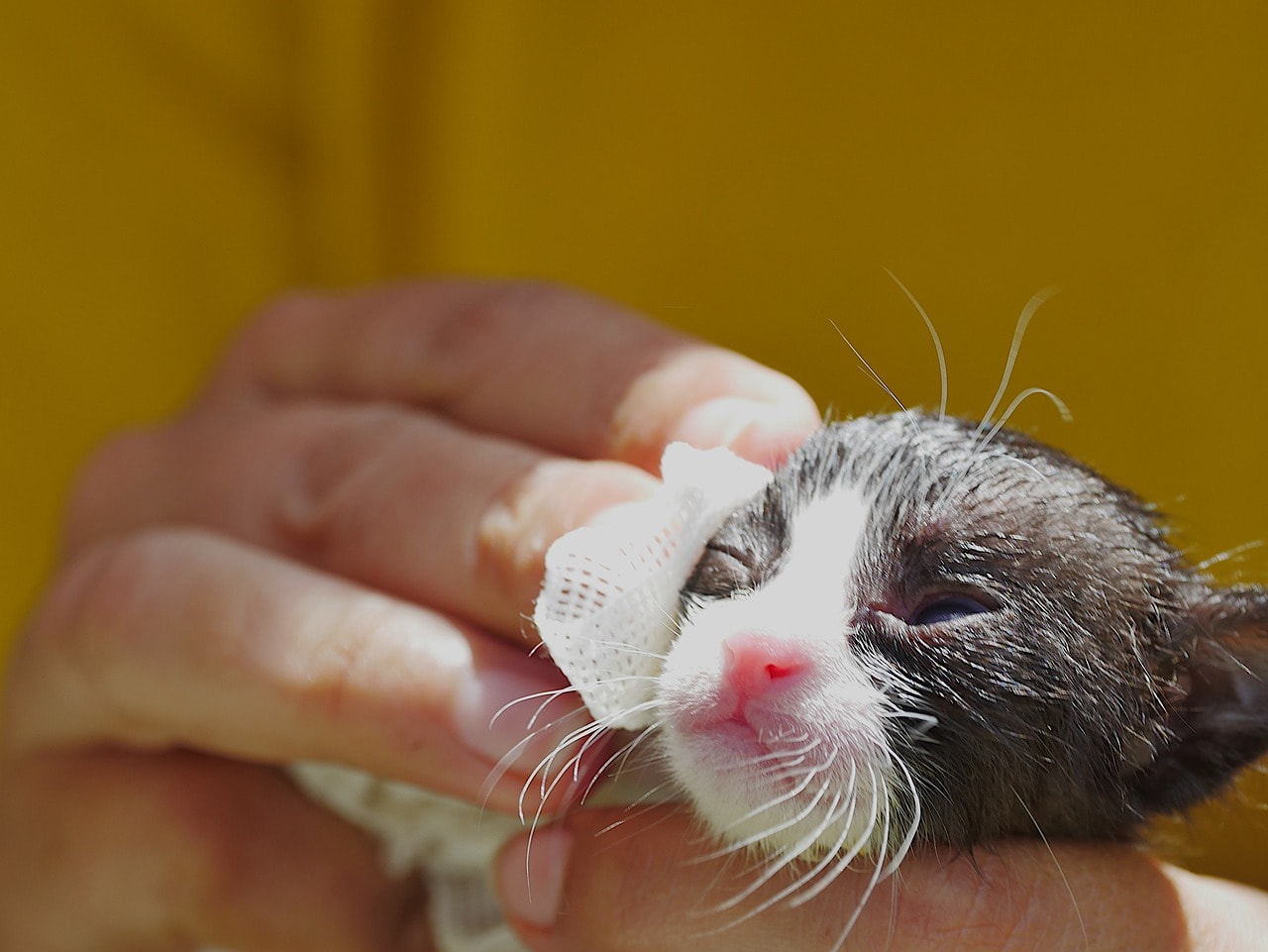
When kittens are born, they may have a medical emergency or even be abandoned by the mother. Another scenario could be the kitten was taken away from the mother and abandoned by a heartless human. Whatever the case, knowing how to save a kitten is something everyone should know should you find yourself in this situation. After all, the kitten’s life depends on it.
There may be a situation when you need to apply first-aid, and knowing what to do can save the kitten’s life until the kitten can receive treatment. In this article, we’ll list the steps you’ll need to save a kitten’s life should such an incident arise.
Before You Start
Before you do anything, assess the situation and ensure the kitten needs medical attention before you do anything else.
Many factors come into play when it comes to the declining health of a kitten. The kitten could have suffered some type of injury, succumbed to hypothermia or hypoglycemia,1 or the mother was not producing a sufficient amount of milk for her young.
Fading Kitten Syndrome is when a kitten is born alive but doesn’t live long,2 and roughly 15% to 27% die before reaching 9 weeks of age. The mortality rates for orphaned kittens are 15% to 40% before 12 weeks of age.
Symptoms of fading kitten syndrome are lethargy, labored breathing, the kitten feeling cold to the touch, and excessive vocalizing. Now that you know the symptoms of fading kitten syndrome, you can assess if that’s the problem until you can get the kitten to the vet. Read on to learn how to save a dying newborn kitten.

How to Save a Kitten
Provide Warmth
Providing warmth is crucial in the event that the kitten has hypothermia or hypoglycemia. Wrap the kitten in a blanket or towel but leave the face exposed. You can use a heating pad for extra warmth if you have one.Ensure the heating pad does not touch the kitten directly to prevent burns. You can also put warm water (not boiling) into a Ziploc bag and apply it to the kitten, but only after wrapping the bag in a towel.

Increase the Kitten’s Blood Sugar
This next step can be done while you’re providing warmth. Apply Karo syrup or some type of pancake syrup to the kitten’s gums by massaging the syrup onto the gums gently. You can also use equal parts of sugar and water and apply with your finger or a syringe in case you have no syrup handy. Place a few drops into the kitten’s mouth every three minutes. You should see improvement within 20 minutes if low blood sugar is the cause.
Grab a Box or Pet Carrier
A pet carrier is best, obviously, but in case you don’t have one, a cardboard box will suffice. Ensure the box is big enough for the kitten to stand and turn around, and be sure to place a towel or old tee shirt inside the box for comfort and warmth. Place a lid on the box to ensure the kitten cannot crawl out, and make several holes in the box for fresh air.
Contact Your Local Vet
Find the nearest veterinarian. Even if you have a veterinarian you love and trust, you may not have time to use them if the practice is of considerable distance. Try and find a vet that is nearest to you. The nearer the vet, the better chance of survival for the kitten.
 Conclusion
Conclusion
It’s truly heartbreaking to see a kitten in distress, but it does occur. Several factors could be the cause of the decline, and knowing how to assess the situation could save a dying kitten’s life.
Remember to assess the situation before administering any first-aid, and contact the nearest vet as soon as possible while following the steps mentioned above.
Featured Image Credit: SarawutKitimoon, Shutterstock







